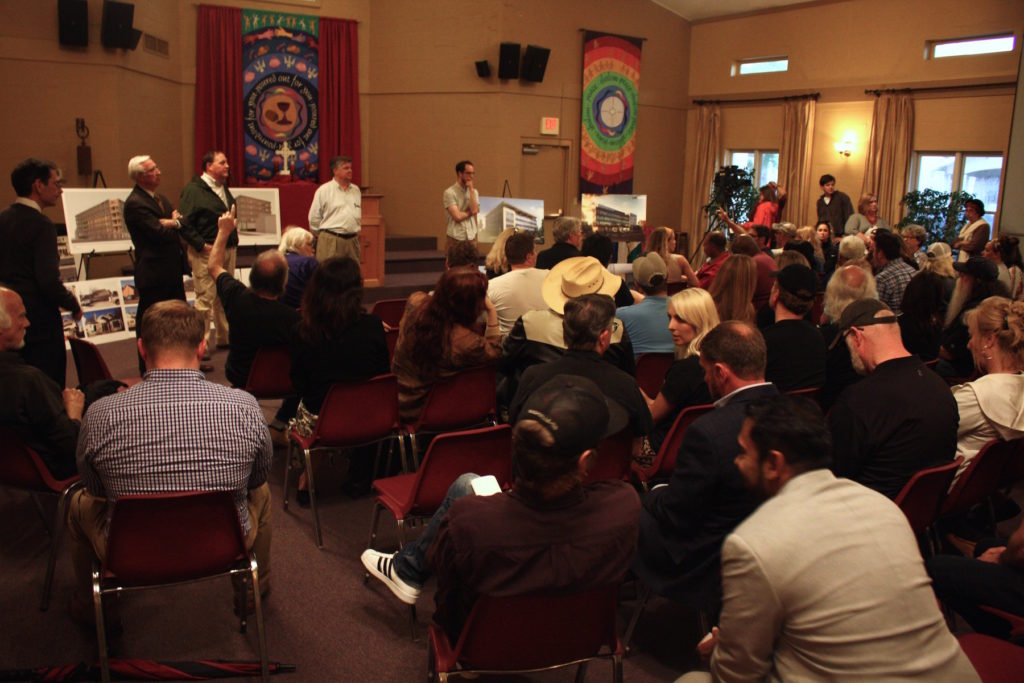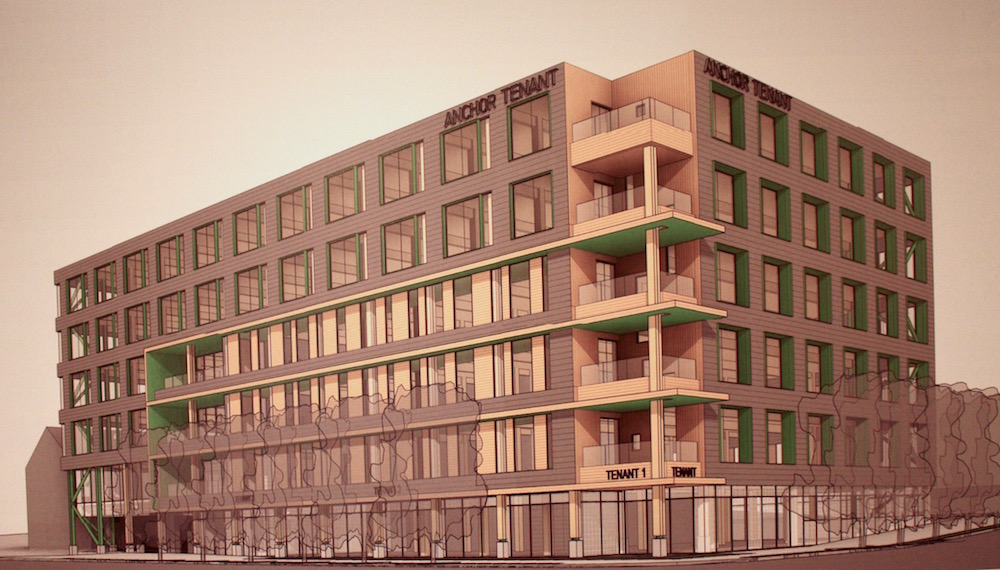
It’s been four years since Nashvillians rallied to save RCA Studio A from demolition. But in the time since then, other redevelopments have continued to change the Music Row neighborhood, perpetuating a tussle between competing visions of preserving and developing the prominent area.
The fight is about the structures and what they’re used for, but also the identity, mentality and daily business of Music Row.
Now preservationists are pushing Metro to finalize new protective rules, some of which have been discussed at length in recent years. And adding urgency to that effort is a development proposal, made public in May, that would do away with Bobby’s Idle Hour, a beloved songwriters’ bar located in the heart of the Row.
The bar acts as a magnet for music lovers, thanks in part to the laidback, come-as-you-are mood set by the owner — Lizard Thom Case.
“I’ve owned it for the past five years — but I’ve been drinking in here for 20,” he says, with his signature chortle. “This really is unique. Songwriters come here from all over the world. And it’s such a nurturing atmosphere for songwriters new and old.”
The bar celebrates the old school Music Row. Not that there were abundant bars, but an up-by-the-bootstraps mentality; a neighborhood of businesses often housed in bungalows, where all comers could dream of making it big.
Bobby’s itself is not architecturally stunning — the converted 1925 home had one life as a convenience store — but it is approachable.
“New high rises, to me, don’t fit the tone of Music Row,” Case said. “But of course, money talks.”
Change is on his mind because his block — five buildings that include the workspaces of music producers and a guitar repairman — could be demolished to make way for a single glassy, multi-story office building.
“I think this will probably happen, but I hope not,” he said.

For many, the idea of demolishing Bobby’s struck a nerve.
Nearly 80 people packed a community meeting to look at preliminary renderings from the Panattoni development team. They also peppered the developers with speeches about the Row’s identity, and combative questions about the proposed seven-story building.
“People come here to hear our story. They don’t care if you have seven or eight floors of glass on Music Row,” said Trey Bruce, a musician-turned-tour-guide. “Let’s find a way to save the culture and the business atmosphere of the creative, collaborative neighborhood.”
Also under pressure that night was Councilman Freddie O’Connell. He tried to explain that despite attempts to create a strong preservation plan, a divide remains between what songwriters and small business owners want and the desires of the actual property owners along the Row.
“I, and all of my colleagues on Metro Council, are powerless,” O’Connell said. “We have zero tools for preservation on Music Row right now [interruption] outside of the voluntary participation of property owners.”
A Changing Industry
Also exposed that night: a rift within the music community.
There’s unease between the needs of the mom-and-pops of the industry and the major companies. Some of the smaller operations have struggled with rising rents along the Row, whereas some of the big players have also left in search of larger, modern offices.
So the developer who took heat at the community meeting, Whitfield Hamilton, said his goal is to address some of that attrition by providing “Class A” office spaces.

“Are these companies that outgrow a house or a two-story … building, can they cohabitate on the Row? Is it OK for them to stay on the Row, or would they be forced out, as the trend was continuing?” he said.
Panattoni has already built two new offices nearby that attracted major music anchors.
“If you go look at what we’re building: there’s music being made, there’s songs being written, there’s royalties being collected, there’s records being produced,” he said. “We can all argue about architecture … but there would be large groups of folks conducting all types of business associated with our music business that Nashville is known for.”
Since the community meeting, the team has not made official filings to develop the properties that include Bobby’s Idle Hour.
Bobby’s, however, did receive notice that its lease would end in January.
“We don’t know what we’re doing,” Lizard Thom Case told WPLN. “We’re looking for a property that we might move into, but haven’t found anything.”
Yet preservationists have pressed on with their work.
The National Trust for Historic Preservation, which completed an exhaustive study of the Row after the threat to Studio A, plans to deliver a petition to the Metro Planning Commission asking for several rule changes (WPLN will detail that effort later this week).
“What we discovered is: There isn’t, and never has been, any other place like Music Row that is a neighborhood that has become this music center,” said Carolyn Brackett, a Nashville-based field officer for the National Trust.
Different than New York, L.A., Chicago, Detroit or Muscle Shoals, the trust says Music Row is a one-of-a-kind cluster of music that came together organically starting in the 1950s — like a musical Silicon Valley.
“Over 60 years ago, the people in the music industry in Nashville just intuitively knew,” She said.
There are still more than 200 music businesses on the Row, but Brackett said that number is falling, along with the buildings. By the trust’s count: 43 knockdowns in five years (see list) — with studios often being replaced by high-rise housing. The Row remains a coveted spot for development between downtown Nashville and Vanderbilt University.
“The urgency is as great as it’s ever been, or greater. I feel we are at a turning point,” Brackett said. “It’s not that nothing ever will change. It’s more of a conscious decision that we want this to still be Music Row. We want it to still maintain its character.”

WPLN’s reporting on Music Row will continue this week with details about possible new Metro policies for the area.

